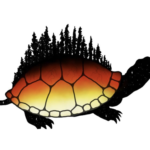Anishinabek Nation releases official education vote results
ANISHINABEK NATION HEAD OFFICE, (Nipissing First Nation) August 30, 2017—The 23 Participating First Nations who successfully ratified the Anishinabek Nation Education Agreement celebrated the historic achievement on August 16, 2017, in Chippewas of Rama First Nation. The official results of the Anishinabek Nation Education Agreement ratification votes for these First Nations were made available today.
“This is no longer a dream! Niigaan gdizhaami – We are moving forward!” says Grand Council Chief Patrick Madahbee. “I can’t help but think about our students. The people who made this happen have really done something so important for them. What we did was historical!”
From November 2016 to January 2017, 29 Anishinabek First Nations held a ratification vote on the proposed Agreement with Canada. Of the 29 First Nations, the members of 14 Anishinabek First Nations successfully met the ratification threshold of 25% + 1 and ratified the Agreement.
The First Nations that ratified in the Winter 2016/17 vote include:
- Aamjiwnaang First Nation with 93 percent of ‘YES’ votes
- Aundeck Omni Kaning First Nation with 95 percent of ‘YES’ votes
- Biigtigong Nishnaabeg with 97 percent of ‘YES’ votes
- Chippewas of Georgina Island First Nation with 91 percent of ‘YES’ votes
- Henvey Inlet First Nation with 96 percent of ‘YES’ votes
- Long Lake #58 First Nation with 94 percent of ‘YES’ votes
- Magnetawan First Nation with 91 percent of ‘YES’ votes
- Mississaugas of Scugog Island First Nation with 94 percent of ‘YES’ votes
- Nipissing First Nation with 96 percent of ‘YES’ votes
- Pic Mobert First Nation with 99 percent of ‘YES’ votes
- Sheshegwaning First Nation with 96 percent of ‘YES’ votes
- Wahnapitae First Nation with 86 percent of ‘YES’ votes
- Wasauksing First Nation with 92 percent of ‘YES’ votes
- Zhiibaahaasing First Nation with 100 percent of ‘YES’ votes
Despite the overwhelmingly positive results in the Winter 2016/17 vote, ratification requirements were not met in 13 communities because not enough voters cast ballots in the initial vote. To satisfy the ratification requirements and affirm their initial “yes” vote, 11 First Nations chose to run a second vote in July 2017. Following the conclusion of the second ratification vote, nine (9) First Nations voted in favour of the Agreement.
The First Nations that ratified in July 2017 vote include:
- Atikameksheng Anishnawbek with 83 percent of ‘YES’ votes
- Beausoleil (Chimnissing) First Nation with 86 percent of ‘YES’ votes
- Biinjitiwaabik Zaaging Anishinaabek with 83 percent of ‘YES’ votes
- Chippewas of Rama First Nation with 91 percent of ‘YES’ votes
- Dokis First Nation with 95 percent of ‘YES’ votes
- Michipicoten First Nation with 94 percent of ‘YES’ votes
- Moose Deer Point First Nation with 81 percent of ‘YES’ votes
- Munsee Delaware Nation with 84 percent of ‘YES’ votes
- Whitefish River First Nation with 75 percent of ‘YES’ votes
The Anishinabek Nation Education Agreement is the largest education self-government agreement in Canada due to the number of First Nations involved.
The Education Agreement with Canada sets out Canada’s recognition of the Participating First Nations’ control over education on-reserve from Junior Kindergarten to Grade 12. The Agreement provides for predictable and reliable funding to operate the Anishinabek Education System (AES), a stand-alone education system parallel to its provincial counterparts.
In moving forward with the Education Agreement with Canada, the Participating First Nations chose to be a party to the complementary Master Education Agreement with Ontario. The provincial agreement creates a new relationship between the Anishinabek First Nations and Ontario that supports Anishinabek student success and well-being in the AES and the provincially-funded education system. The agreement will also support the implementation of the AES.
Following the signing of the Anishinabek Nation Education Agreement with the Government of Canada, the next steps include introduction of federal legislation into Parliament to meet the target effective date of April 1, 2018.


